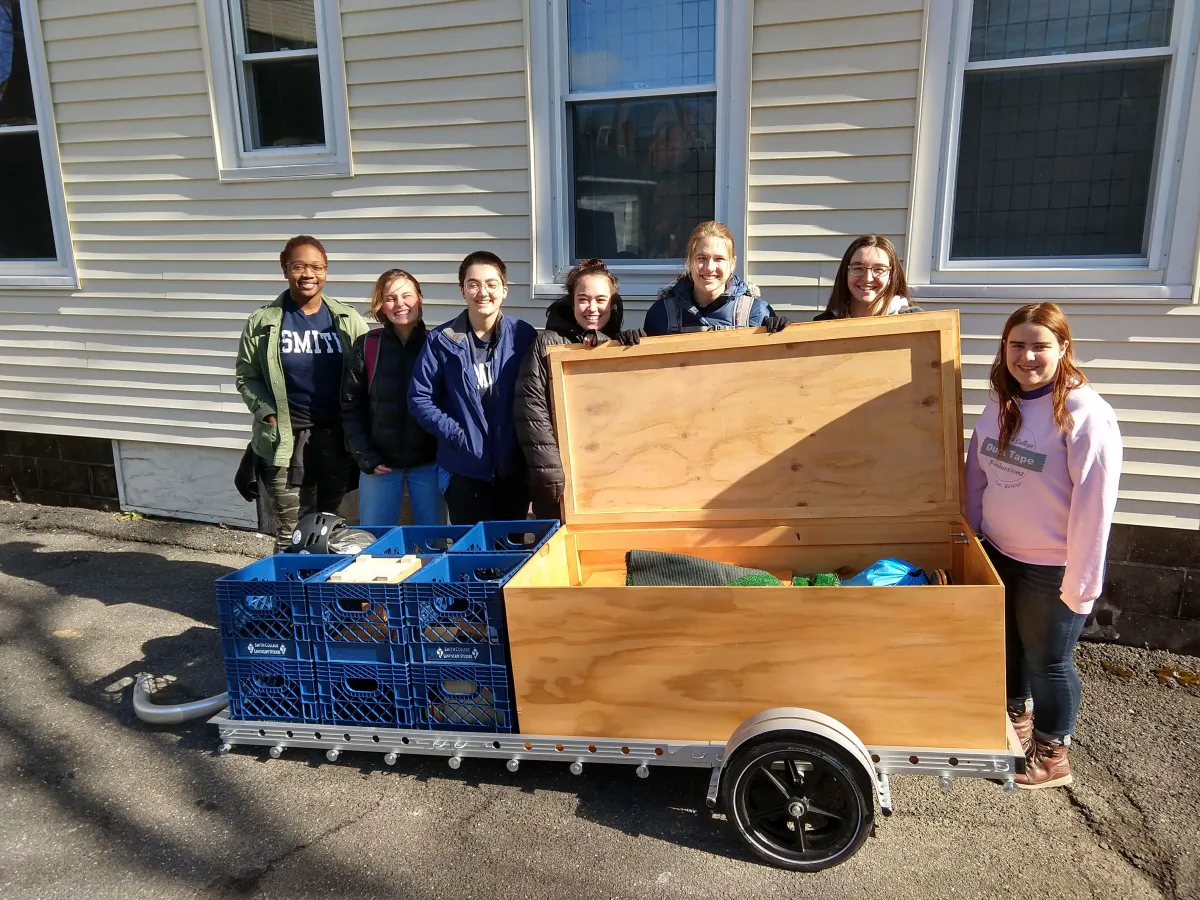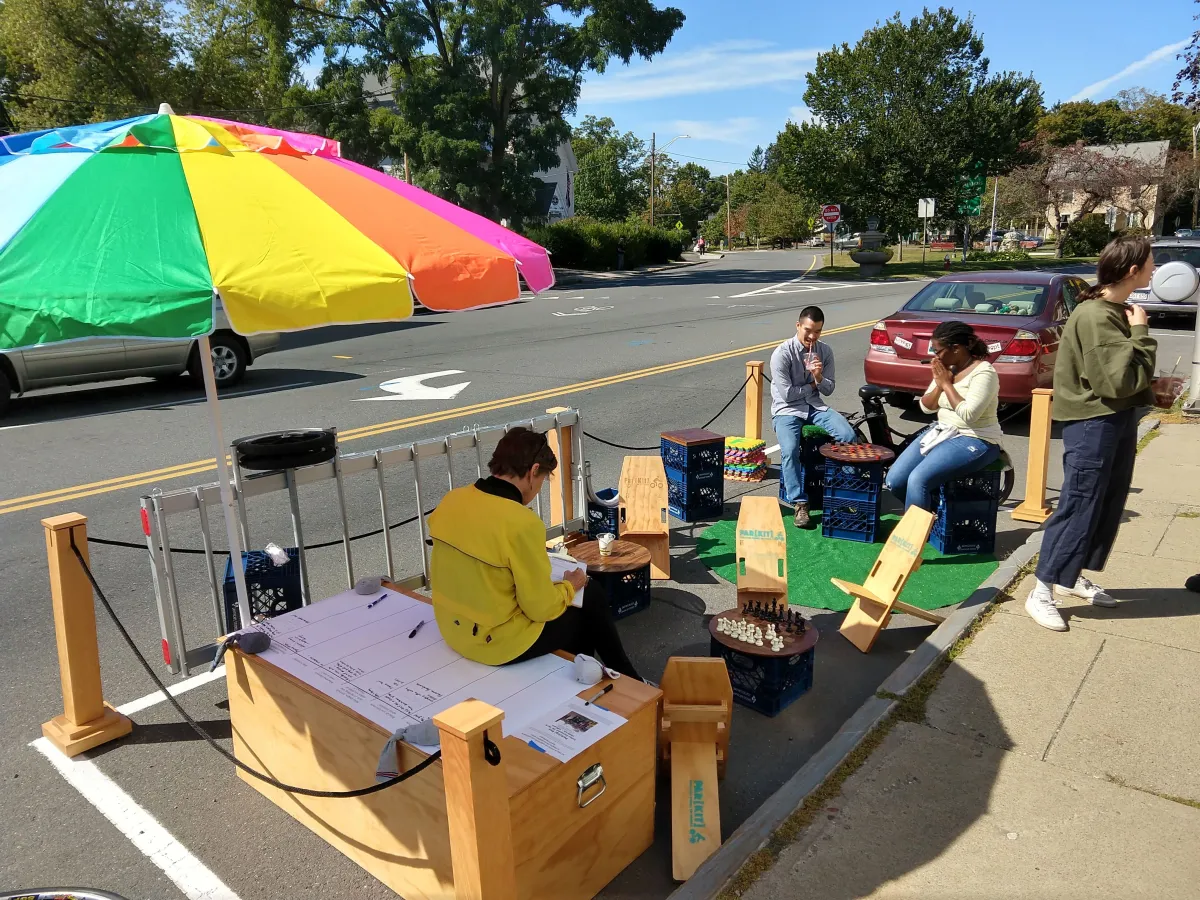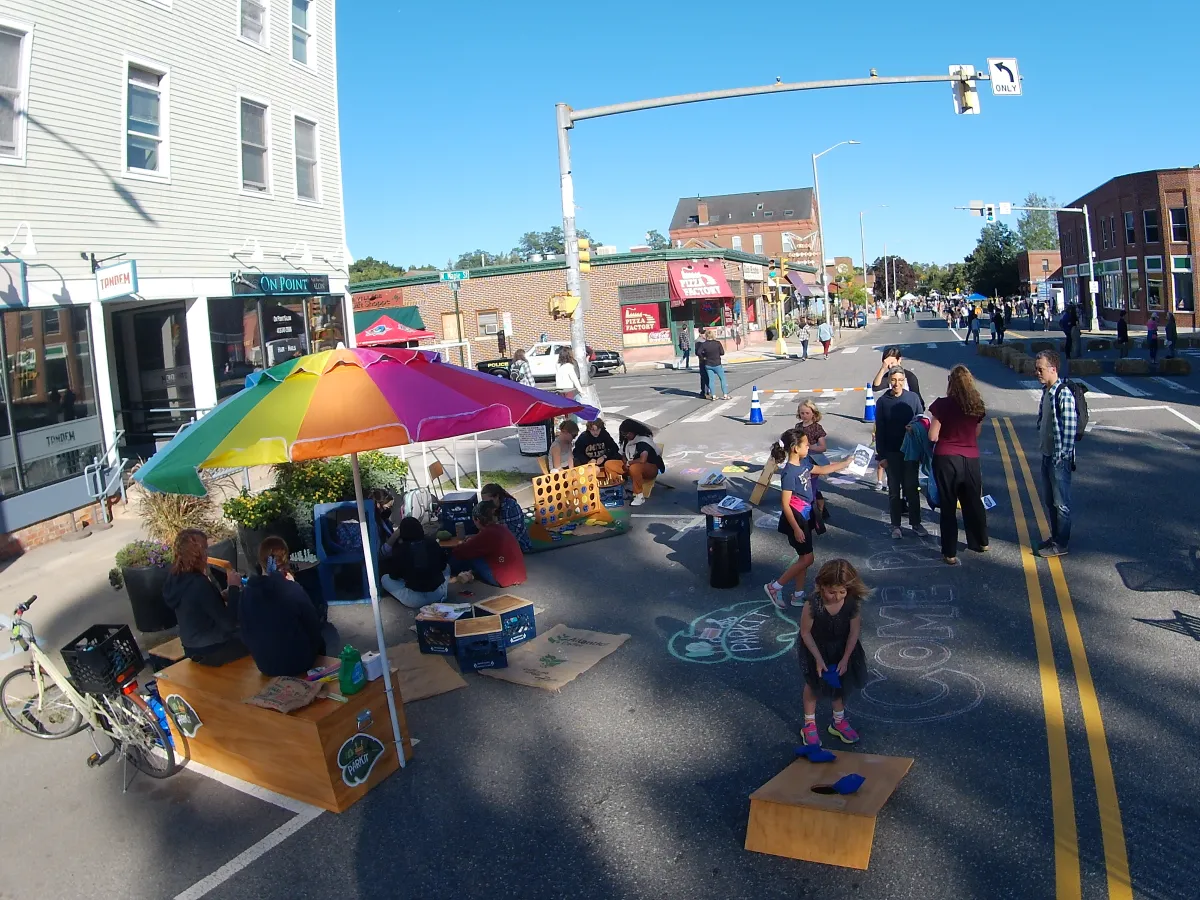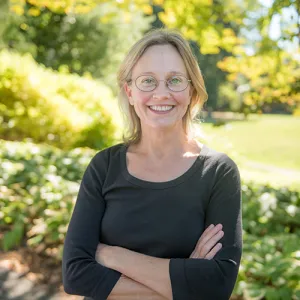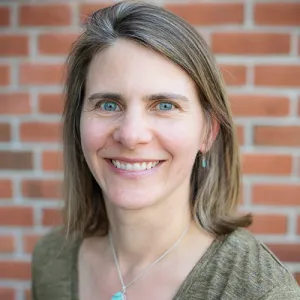The STRIDE Program
Each year, Smith College offers some of its finest incoming first-year students one of the best perks possible: a scholarship that includes a paid research position—a prestigious job and research opportunity that most undergraduates only dream of.
Through Smith’s Student Research in Departments (STRIDE) Program, students with outstanding academic and personal qualifications receive a scholarship of $22,500 per year (limited to $11,250 per semester of enrollment) for each of their four undergraduate years at Smith, regardless of financial need. In addition to the scholarship, STRIDE Scholars are given an annual stipend of $3,000 for each of their first two years at Smith linked to a position as a research assistant. The total four-year amount of the STRIDE award is $96,000. Continuation of the STRIDE grant each year is contingent upon good academic standing.
“My STRIDE research has greatly improved both my ability to conduct research and to clearly communicate my findings and ideas, benefits that spill over into nearly every area of my academic career.”
How Does STRIDE Work?
“These experiences will in turn benefit you with your classes, increase your capacity for continued research, and provide a strong platform for future careers after you graduate.”
Striding Into Action
Current STRIDE scholars Laura Edwards ’25, Emma Nadeu ’26, and Kat Brady ’26, along with Reid Bertone-Johnson, a lecturer in landscape studies, focus on “tactical urbanism”—temporary urban design that helps communities envision uses of public spaces—in their research project. In particular, they’ve developed the “ParKit,” a mobile park that can be carted from place to place with just a bicycle.
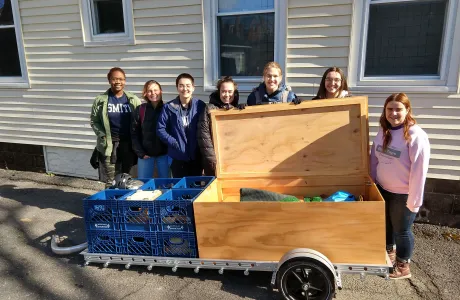

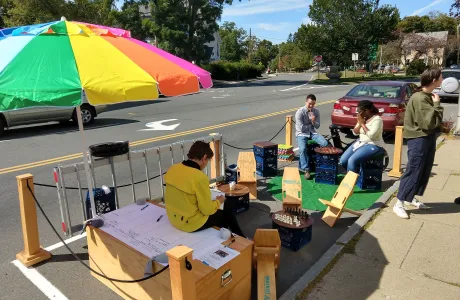

“Being a data science major, computers are my bread and butter. So, I am glad STRIDE is actively encouraging me to branch out and find other things that I love!”
What Can STRIDE Do for Me?
Meet the Directors
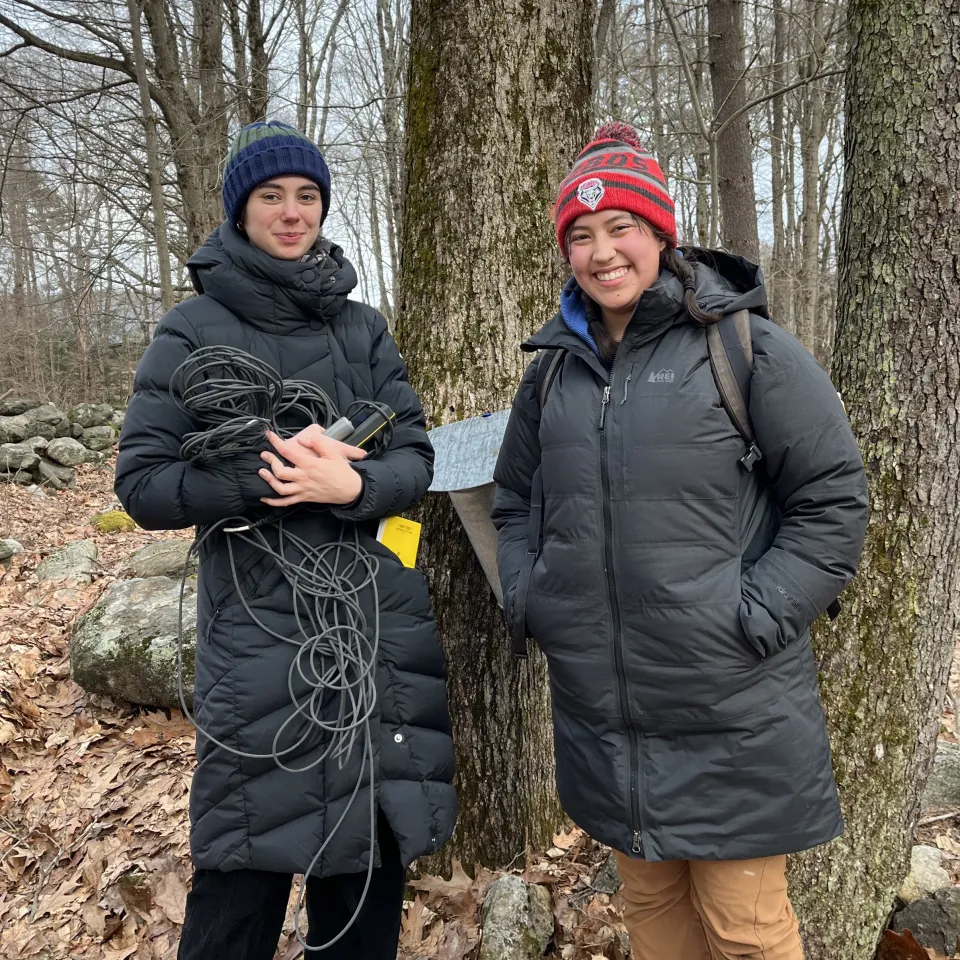
STRIDE scholars Amelia Scott '27 and Victoria Scott '27 in the field.

